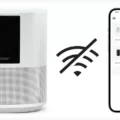When it comes to choosing a speaker, one of the most important factors to consider is the wattage. Wattage refers to the power that a speaker can handle and the amount of power an amplifier is putting out. The higher the wattage, the louder and cleaner the speakers will play. But, how much wattage do you actually need for your home speaker system?
For most homeowners, a speaker between 15 and 30 watts is sufficient enough. A speaker with 20 watts is often found to be ideal. This wattage is perfect for listening to music or watching movies at home without disturbing your neighbors.
If you’re planning to use your speaker for larger gatherings or events, you may want to consider a speaker with a higher wattage. A speaker with 50 watts or 100 watts may be suitable for such occasions. However, keep in mind that speakers with such high wattage are not ideal for home use as they can be too loud and overpowering.
It’s important to note that wattage is not the only factor to consider when choosing a speaker. Other factors such as sensitivity, frequency response, and impedance should also be taken into consideration. Sensitivity refers to how loud a speaker can play with a given amount of power. Frequency response refers to the range of frequencies that a speaker can reproduce. Impedance refers to the resistance of the speaker to the flow of electrical current.
In the past, people used to combine a low-watt amplifier with high-watt speakers and call it a day. However, this is not a good practice as it can lead to damage to the speakers. It’s important to match the wattage of the amplifier with the wattage of the speakers to ensure optimal sound quality and prevent damage to the equipment.
When choosing a speaker, it’s important to consider the wattage, sensitivity, frequency response, and impedance. For most homeowners, a speaker between 15 and 30 watts is sufficient enough, with 20 watts being ideal for home use. However, if you’re planning to use your speaker for larger gatherings or events, you may want to consider a speaker with a higher wattage. Always make sure to match the wattage of the amplifier with the wattage of the speakers to ensure optimal sound quality and prevent damage to the equipment.

What Is the Ideal Wattage for Good Speakers?
When it comes to determining the appropriate wattage for speakers, there is no one-size-fits-all answer. The best wattage for speakers will depend on various factors, such as the intended use, room size, and personal preference. However, as a general rule, a wattage range of 15 to 30 watts is considered ideal for home speakers. Many homeowners find that a speaker with 20 watts is sufficient to deliver good sound quality. On the other hand, if you plan to use the speakers for larger gatherings or events, you may need a higher wattage, such as 50 watts or 100 watts. It’s important to remember that excessively high power can be overwhelming and not suitable for home use. Ultimately, the best wattage for speakers will depend on your individual needs and preferences.
How Loud is a 100-Watt Speaker?
A 100-watt speaker produces a sound level of approximately 110 dB. This is because sound level is measured logarithmically and each additional 10 watts of power results in a 10 dB increase in sound level. Therefore, compared to a 1-watt speaker which produces 90 dB, a 100-watt speaker produces a sound level that is 20 dB higher. To put this into perspective, 110 dB is equivalent to the sound of a chainsaw or a rock concert. It is important to note that prolonged exposure to sounds at this level can cause damage to hearing, so it is recommended to use protective earplugs in these situations.
Understanding Speaker Wattage
Wattage in speakers refers to the amount of electrical power that a speaker can handle or the amount of power that an amplifier is putting out to drive the speaker. It is a measure of the speaker’s ability to convert electrical power into sound waves. The wattage rating of a speaker is usually given as a maximum power handling capacity, which represents the highest amount of power that the speaker can handle without getting damaged.
The wattage rating of a speaker is an important consideration when selecting an amplifier or receiver. If the amplifier outputs too much power for the speaker to handle, it can damage or blow out the speaker. On the other hand, if the amplifier does not output enough power, the speaker may not be able to produce the desired volume or sound quality.
It is important to match the wattage rating of the speaker with the power output of the amplifier to ensure optimal performance and prevent damage to the equipment. Additionally, it is worth noting that higher wattage does not necessarily mean better sound quality, as other factors such as speaker construction, materials, and design also play a significant role in determining the overall sound quality of a speaker.
The Benefits of Higher Wattage Speakers
When it comes to speakers, higher wattage can generally mean louder and cleaner sound. This is because speakers with higher wattage have more power to drive the drivers and produce sound. However, it’s important to note that small differences in wattage may not make a noticeable difference in sound quality.
Additionally, wattage is not the only factor that determines the quality of a speaker. Other factors such as driver size, design, and material also play a role in sound quality.
Higher-wattage speakers can potentially produce better sound, but it’s not the only factor to consider when choosing a speaker.
Conclusion
Speaker wattage is an important factor to consider when choosing the right speaker for your home or event. While high wattage may seem impressive, it is not always necessary for home use and can even cause damage to your speaker if not properly matched with an amplifier. The ideal wattage range for home speakers is between 15 and 30 watts, with 20 watts being sufficient for most homeowners. When selecting a speaker for larger gatherings, a wattage of 50 or 100 watts may be appropriate. It is important to remember that wattage is only one factor in determining the quality and performance of a speaker, and other factors such as speaker size, sensitivity, and impedance should also be considered. By understanding the importance of speaker wattage, you can make an informed decision when selecting the right speaker for your needs.








